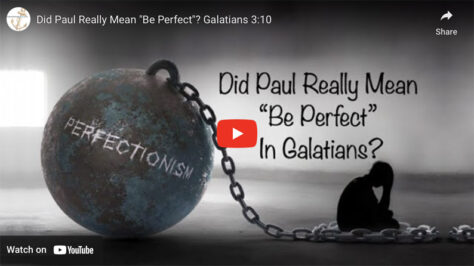
Maybe you’ve heard “The Hound of Heaven” used as a “name” for God. It’s been around since the late 19th century when a poem by that name gained international attention. While “The Hound of Heaven” is often used to refer to God, it’s technically not a name for God. The reason? It’s not found in the Bible. The biblical names of God are many, and the Bible clearly records them (Read: In addition to Yahweh (YHVH), Yeshua, and Jesus, what other names for God are in the Bible?) and What a Beautiful Name: The Name of Jesus).
Although “The Hound of Heaven” should not be considered a name for God, it is appropriately used as a descriptive title of God. The Hound of Heaven typifies an important characteristic of our God. He seeks us! He “hunts” us! And He wants us! (Watch our video of the popular song “The King of Heaven Wants Us.”)
“The Hound of Heaven” Origins
The title was inspired by an 182-line poem by an English poet named Francis Thompson (1859–1907), and Puritans often used “Hound of Heaven” to refer to God because it descriptively tells of God’s relentless pursuit of man.
Francis Thompson (1859–1907) published his poem in 1893, and it gained popularity in the early 1900s when it was recognized and affirmed by G. K. Chesterton and J. R. R. Tolkien. Chesterton said, “it is the most magnificent poem ever written in English.” Tolkien responded by saying Chesterton was not giving the poem the credit it deserves.
In the book, “A Study of Francis Thompson’s Hound of Heaven,” author John O’Coner describes the poem. His description of the poem will cause you to want to read and meditate on this centuries-old masterpiece of prose.
“The name is strange. It startles one at first. It is so bold, so new, so fearless. And it does not attract, rather the reverse. But when one reads the poem this strangeness disappears. The meaning is understood. As the hound follows the hare, never ceasing in its running, ever drawing nearer in the chase, with unhurrying and imperturbed pace, so does God follow the fleeing soul by His Divine grace. And though in sin or in human love, away from God it seeks to hide itself, Divine grace follows after, unwearyingly follows ever after, till the soul feels its pressure forcing it to turn to Him alone in that never-ending pursuit.” ¹
Understanding “The Hound of Heaven”
The poem borrows language from the British hunt called Hare Coursing. Hare Coursing is the pursuit of hares by two dogs, predominantly greyhounds, “with unhurrying chase, And unperturbèd pace, Deliberate speed, majestic instancy…”
The poem is based on a passage in Psalm 119. In verses 65-72, the psalmist reviews his life and sees a person who disobeyed God’s word. The psalmist understands that God afflicted him for a good purpose and, in doing so, took him from disobedience to obedience. God broke him down and brought him to his knees to draw him to his Creator in faith and trust.
Take a minute to read the psalmist’s words and a short bio about Francis Thompson, and then watch the video of Thompson’s epic poem (the full text of the poem is on the video).
Psa 119:65-72 Thou hast dealt well with thy servant, O LORD, according unto thy word. Teach me good judgment and knowledge: for I have believed thy commandments. Before I was afflicted I went astray: but now have I kept thy word. Thou art good, and doest good; teach me thy statutes. The proud have forged a lie against me: but I will keep thy precepts with my whole heart. Their heart is as fat as grease; but I delight in thy law. It is good for me that I have been afflicted; that I might learn thy statutes. The law of thy mouth is better unto me than thousands of gold and silver.
THE HOUND OF HEAVEN
The words of the poem are presented in the video.
About Francis Thompson
Poet Francis Thomspon (1850-1907) wrote from a deeply troubled soul. Thompson suffered from depression and lived a life of drug addiction and poverty. As a frail, shy, introverted child, Thompson had exhibited signs of one who would struggle in life. Born into a well-to-do English family, opportunities for higher education were afforded him, but an inner voice drew him to a literary life that resulted in poverty and homelessness on the streets of London. A peer described him as:
A stranger figure than Thompson’s was not to be seen in London. Gentle in looks, half-wild in externals, his face worn by pain and the fierce reactions of laudanum. His hair and straggling beard neglected, he had yet a distinction and aloofness of bearing that marked him in the crowd. And when he opened his lips he spoke as a gentleman and a scholar. It was impossible and unnecessary to think always of the tragic side of his life.
About The Hound of Heaven
In 1887, Thompson sent his poems to Wilfrid Meynell, editor of a Catholic literary magazine titled Merry England. Meynell published the poems and helped the poet financially as well as in coping with daily life and helping him to battle his drug addiction. While Meynell and other friends cared for Thompson during the remaining years of his life, he never fully recovered from his life on the streets and died in 1907 of tuberculosis.
Meynell, who realized the poetic genius in Thompson, called him “a poet of high thinking, of ‘celestial vision,’ and of imaginings that found literary images of answering splendor.”
All agree that the greatest of Thompson’s poems is “The Hound of Heaven.” One critic called it “one of the great odes of which the English language can boast.” With God’s hunt for lost souls described beautifully throughout the poem, the climax comes at the end with the description of the wandering soul’s final surrender to God’s love.
<*}}}><
*******
Jesus is the Reason this Ministry Exists
At Reasons for Hope* Jesus, we are committed to equipping, encouraging, and empowering Christians to know Jesus better, love Him more, and share their faith. We also reach the lost through our Salvation Page.
With your support, we can continue to provide valuable resources and engaging content. Please join us in our mission by donating today. Your generous contribution helps us expand our outreach of sharing biblical truths and hope in Jesus. Thank you for your kindness and for being an integral part of our mission.
*******
*******
***A Hidden Message in Psalm 23?***
Hidden in the six verses of Psalm 23 are 11 names for Jesus. When you subscribe to our newsletter, we’ll send you The Names of God in Psalm 23 PDF that reveals all 11 names and Scripture verses of comfort and hope (link will be sent in your confirmation email).
 A Room with a View of Eternity—The Last Will & Testament of Jesus Christ Take a seat at the Master's table. Learn about the riches He gives to all who are His. This book will bless and encourage you, give you hope, and help you live in the joy of your salvation and the riches of Christ that are yours.
A Room with a View of Eternity—The Last Will & Testament of Jesus Christ Take a seat at the Master's table. Learn about the riches He gives to all who are His. This book will bless and encourage you, give you hope, and help you live in the joy of your salvation and the riches of Christ that are yours.

The Top Ten Got Questions? in 2023
- The Meaning of NUMBERS in the Bible?
- Was Jesus CRUCIFIED on Wednesday, Thursday, or Friday?
- How was Jesus Like a Worm? What’s the CRIMSON (OR SCARLET) WORM in Psalm 22?
- How are the Shepherd’s ROD and STAFF Different?
- How long did JOB SUFFER?
- What is the Significance of the Wise Men's THREE GIFTS? And were they kings?
- Did The Wise Men Arrive 12 DAYS AFTER JESUS’ BIRTH? Or Was It Much Later?
- Jesus’ Last Days TIMELINE: the Cross and the Resurrection
- The Meaning of COLORS in the Bible?
- Did Jesus Fight Satan to Take Back the KEYS of Death and Hell?
There is much to be learned from those who have gone before us in the faith. Check out our Cloud of Witnesses category that features the words of departed saints who are now with the Lord in glory. Their words equip and encourage us even to this day. Take a few minutes to hear...
- ONLY ONE LIFE, Twill Soon Be Past – by C.T. Studd (1860 – 1931)
- “The Love of God is Greater Far” by Frederick M. Lehman (1917)
- Prayers from Billy Graham
- Who Was Robert Robinson? What’s the Story Behind “Come Thou Fount”
- “Immanuel” — A Poem by Charles Spurgeon (1834-1892)
- Who Am I? A Poem by Deitrich Bonhoeffer (1905-1945)
- Understanding the Everlasting Arms of God, by J.R. Miller (1840–1912)
- 24 Reasons Why I Love America, by John Wayne (1907-1979)
- Give Me Perpetual Broken-heartedness (from The Valley of Vision)
- Abide with Me, by James Smith, 1859
This remains one of our most popular pages viewed.![]()

TOP TEN Videos from Reasons for Hope* Jesus
- Memorial Day BAGPIPES TRIBUTE: Amazing Grace
- RISE AND SHINE and Give God the Glory, Glory!
- WERE YOU THERE When They Crucified My Lord?
- PAUL HARVEY: THE BIRDCAGE
- PRESIDENT RONALD REAGAN: A SOLDIER'S PLEDGE
- Hark! the Herald Angels Sing -- CHARLIE BROWN Christmas
- JOHN WAYNE ~ WHY I LOVE AMERICA
- Jimmy Stewart - Nativity Scene Prayer: Mr. Krueger's Christmas
- THE LEGEND OF THE CANDY CANE - A Christmas Story to Share
- Not by Might, Not by Power, But BY MY SPIRIT says the Lord (Zechariah 4:6)
*****************























